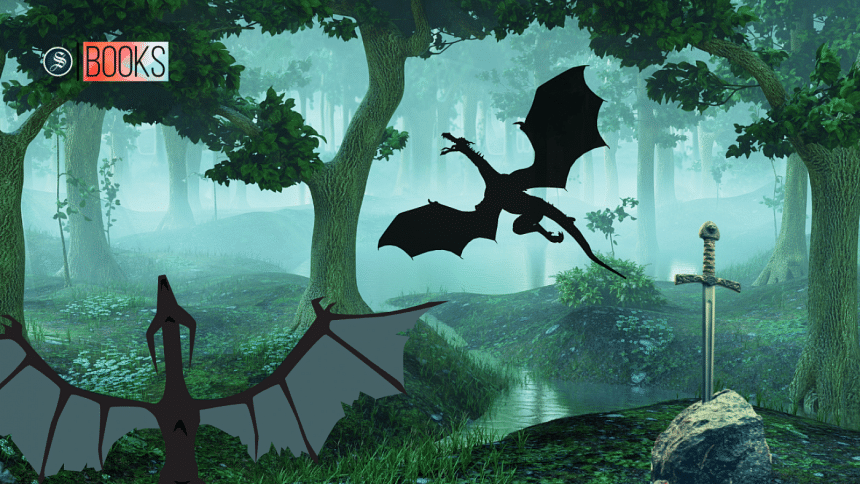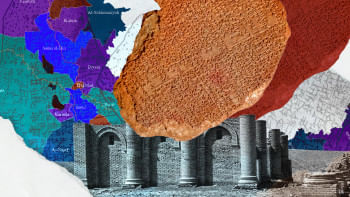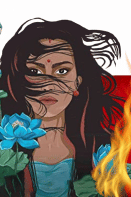Everybody hates fantasy. Let’s talk about it.

Academia and the greater literary community is a rich, diverse and open-minded group. The majority of people who are passionate about literature tend to be curious, creative and inventive individuals who are always on the lookout for new ideas and perspectives. However, there is a flipside to everything, and literature is no different. An odd side to this is the way some genres are viewed by the greater community. The topic in question today: Fantasy.
Interestingly, the first stories that children tend to be exposed to are fantastic fairy tales. Yet, as adults, we shy away from those same foundations. The popularity, growth, appeal, and sales figures of fantasy literature have never been higher (Wordsrated, 2022). From books to comics, movies, TV shows, games and even merchandise, fantasy tends to sell like candy—and yet we continue to belittle it. A little-known fact which tends to be disregarded in any discussion about fantasy is that a large number of the oldest texts we know, such as the Mahabharata, The Epic of Gilgamesh, and even the great epics of Homer, are all directly related to or contain heavy features of the fantasy genre. From the awe-inspiring feats of willpower in the Mahabharata to the intervention of religious figures in Gilgamesh and Homer's tales, there are vestiges of fantasy to be found among the oldest and most profound literatures in the world. These works are venerated, analysed, studied, and taught to this day—yet fantasy continues to be ostracised.
However, before we delve into the hows and the whys, the fantasy genre itself needs to be defined. Much like literature, this genre is difficult to pin down. The Cambridge Dictionary defines it as "a type of story or literature that is set in a magical world, often involving traditional myths and magical creatures and sometimes ideas or events from the real world". Using this as a basis, we can branch out into sub-genres:
High or epic fantasy: typically set in a unique world or universe, and follows a character or number of characters on an epic-scale adventure. Example, J R R Tolkien's The Lord of the Rings (1954).
Low fantasy: usually set in the real world which includes magical elements. Example, American Gods (Avon Books, 2001) by Neil Gaiman.
Magic realism: similar to low fantasy, with the exception of the characters accepting the fantasy elements as ordinary parts of their world. Example, Gabriel García Márquez's One Hundred Years of Solitude (1967).
Dark fantasy: combines fantasy, gritty realism and horror. Example, George R R Martin's A Song of Ice and Fire (Voyager Books, 1996).
Fables or fairy tales: generally set in magical lands, these use personified animals and the supernatural to entertain or impart moral lessons. Examples, Aesop's Fables and the Brothers Grimm's Grimm's Fairy Tales (1812–1858).
However, fantasy continues to be looked down upon by academics and the greater literary community. Based on anecdotal evidence, complaints about the genre being "pure escapism", "childish" and "uninteresting" are common. There are also reviews which accuse fantasy literature of being "formulaic", "out of touch" and even "outdated". There are also mentions of it lacking literary merit, relying on cliches and being predictable.
There is merit behind every single of these criticisms. Escapism is very much a part of fantasy literature—as it is in Shakespeare's plays. Childishness is more difficult to define, but if we assume it means "immaturity", A Midsummer Night's Dream's Puck must certainly be accused of the same. Being uninteresting is a matter of pure taste, so there is little to be done about that, but it can be difficult to describe "delving down into the underworld of the gods" as uninteresting—as it happens in both The Odyssey and Gods of Jade and Shadow (Del Rey, 2019) by Silvia Moreno. "Formulaic" is another interesting accusation, since it can be applied to almost every literary genre—after all, we have character arcs and formulas such as Joseph Campbell's hero's journey in nearly every media in the world. Being "out of touch" or "outdated" is a little harder to defend, but when we compare fantasy books released last month which promote equality, free-thinking, and diversity and contrast it with classics such as The Adventures of Huckleberry Finn, which discuss racial injustice but also portray every female character as either nagging, shrewish or with suspicious morality, it becomes a little uncomfortable. "Literary merit" is a very nebulous term, but if we imagine it to mean "the quality shared by all works of fiction that are considered to have aesthetic value", then it can be difficult to debate whether or not prose like this deserves to be taught in classrooms:
"Now these ashes have grown cold, we open the old book.
These oil-stained pages recount the tales of the Fallen,
a frayed empire, words without warmth. The hearth
has ebbed, its gleam and life's sparks are but memories
against dimming eyes—what cast my mind, what hue my
thoughts as I open the Book of the Fallen
and breathe deep the scent of history?
Listen, then, to these words carried on that breath.
These tales are the tales of us all, again yet again.
We are history relived and that is all, without end that is all."
This was written in 1999 by Steven Erikson, and they are the opening lines of his epic fantasy series Malazan Book of the Fallen (Bantam Books, 1999-2011). There is very little that is cliche or predictable here.
Fantasy is a powerful, modern and useful tool to explore themes both common and uncommon to literature. Questions such as sexuality, education, diversity, equality, discrimination, identity, social injustice, and even mental health can all be discussed in more profound depth when you take away the trammels of the real world and place them, stark in their raw forms, in a new one. Slavery is a historical fact in our world, but when we witness young protagonists fighting against it in a fantasy novel, it puts the reality of it into a powerful perspective in our day and age. After all, human trafficking is a very real, modern and on-going issue, but it remains as a form of slavery no matter what new labels we place on it. No longer does it stay just a chapter in a history book, but a real-life dragon to be slain today.
If we ostracise and reject the new, we will continue to dwell on the outdated ideas of the past. Growth and learning happen only when we open our hearts and minds to every possibility, whether that is people, places, food, ideas or a genre of literature. After all, as Steven Erikson says in Memories of Ice (Bantam, 2001), "Diversity is worth celebrating […], for it is the birthplace of wisdom."
Sarazeen Saif Ahana is an adjunct member of the faculty at Independent University, Bangladesh where she teaches English and considers "growing up" to be overhyped.

 For all latest news, follow The Daily Star's Google News channel.
For all latest news, follow The Daily Star's Google News channel. 












Comments